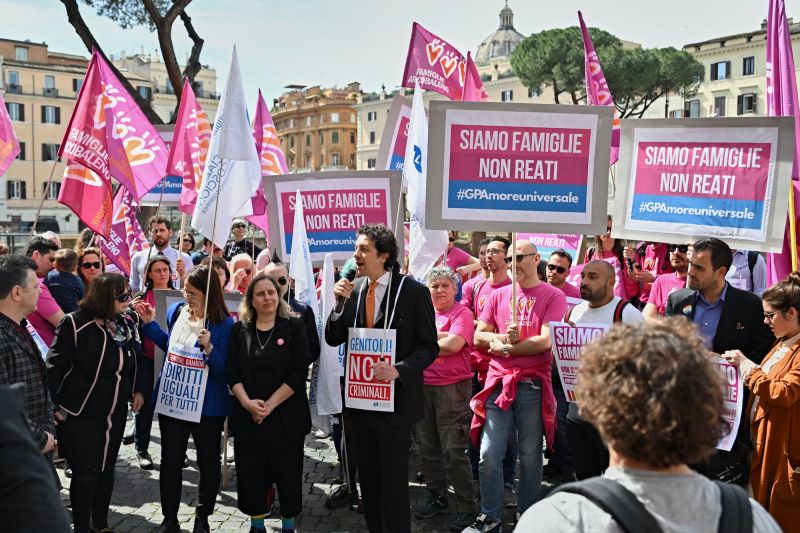Body:
The Italian government, known for its deeply-rooted cultural and societal beliefs, has recently taken a bold yet controversial measure in regulating reproductive rights. It has made it illegal for couples to have a baby through surrogacy, even if the procedure is conducted overseas. This new law has sparked a massive debate within the country and beyond, facing intense scrutiny from human rights organizations and piquing the interest of sociologists and clinicians worldwide.
Italy’s new legislation forms part of a tightening trend in policies related to surrogate motherhood across the globe. It comes against a backdrop of ethical and legal concerns on the part of several governments, notably regarding the rights and wellbeing of surrogate mothers, typically women from economically disadvantaged backgrounds.
In Italy, surrogacy is viewed negatively, considered a commodification of women’s bodies and an exploitation of their reproductive capabilities. Interestingly, Italy’s stance on this matter aligns with its mostly Catholic populace; the Church views surrogacy as a violation of the natural order of creation. The law, therefore, seeks to uphold values down to the core of Italian society – preserving the sanctity of parenthood and discouraging practices viewed as disruptive to the family structure.
This major legislative amendment implies that Italian couples who desire to have a baby via surrogacy are not only prohibited from accessing such services on Italian soil but are also barred from commissioning surrogate mothers overseas. The implications are far-reaching, especially for those suffering from infertility and for same-sex couples who have long seen surrogacy as a viable option to have a biological child.
This controversial ban hinges on the belief that parenthood is not just a natural or biological process, but a profoundly human experience, rooted in love and care giving. It underscores that the commodification of this process, as is perceived in surrogacy, sullies the very essence of parenting.
However, the law has faced substantial backlash, criticized for being overly restrictive and denying reproductive rights to certain sections of the society. Critics argue that it not only tramples upon the autonomy and choice of those unable to conceive naturally but also discriminates against same-sex couples and single parents, who may see surrogacy as their only route to having a baby.
Thankfully, the law does not address adoptions; therefore, couples who cannot conceive naturally still have the option to adopt children and form their families that way, though it’s seen by critics as a cold comfort for those who long to have biological children.
With detailed rules yet to be






























